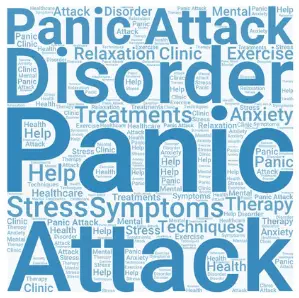People suffering from an anxiety attack at night can do a few things to help calm themselves:
- It is important to establish a regular sleep schedule and stick to it as much as possible. This means going to bed and waking up at the same time each day, even on weekends.
- Limit caffeine intake and avoid drinking alcohol before bed. Both of these can interfere with sleep and make anxiety worse.
- Create a relaxing bedtime routine. Include winding down for 30 minutes before sleep and disconnecting from electronic screens.
- Practice some form of relaxation technique.
Practice deep breathing or progressive muscle relaxation. Still, if anxiety is still keeping you up at night, talk to your doctor. You can consider other treatment options, such as cognitive-behavioral therapy or medication.

There are several reasons why remaining calm during an anxiety attack is important. First, your body’s natural flight-or-fight response will kick in if you panic. The situation will become worse. This can lead to a spiral of escalating anxiety and physical symptoms. Then it won’t be easy to break out of. Second, staying calm will help you to think clearly. You can make better decisions about how to deal with the situation. This will help to prevent the anxiety attack from getting worse. It will also prevent the anxiety attack from becoming a full-blown panic attack. Finally, remaining calm will help to model positive coping behavior for others who may be witnessing your anxiety attack. This can give them an important example of how to deal with anxiety. This may help to prevent them from developing anxiety themselves.
According to the Anxiety and Depression Association of America, anxiety disorders are the most common mental illness in the United States. It affects 40 million adults. That’s 18% of the population! And yet, only 36.9% of those suffering from anxiety disorders receive treatment.
There are various types of anxiety disorders, each with its symptoms. But one of the most distressing and debilitating symptoms can be anxiety attacks.
Anxiety attacks are also called panic attacks. They are sudden and intense episodes of fear or anxiety. They can come on without warning and can be very frightening. There are a few symptoms of an anxiety attack. These include heart palpitations, chest pain, shortness of breath, dizziness, sweating, and trembling.
If you’re having an anxiety attack, staying calm is essential. Try to take slow and deep breaths. Focus on something else, such as a favorite song or memory. And remember that anxiety attacks are temporary and will finally end.
Anxiety and staying calm are crucial factors to consider when managing anxiety attacks. Staying calm can help prevent the trigger of an attack, while anxiety can help identify potential threats or dangers. One should remain aware of these two factors. Then those who suffer from anxiety attacks can manage their condition well.
In conclusion, it is essential for individuals suffering from anxiety attacks to consider both anxiety and staying calm when managing their condition. Remain aware of these two factors, and you can prevent or manage anxiety attacks effectively.
